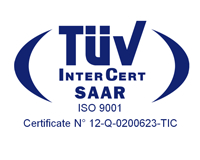
The estimation of velocity with high accuracy-integrity is of paramount importance for the ERTMS train control system and the CCAM connected-autonomous cars. The velocity is derived by gathering and processing data of different sensors measuring distance travelled, the time elapsed, the acceleration with the consequence that the accuracy of the estimated velocity depends on the quality and elaboration of these primary data. At the ION GNSS+ Conference in Denver (USA) – the world’s largest technical meeting and showcase of GNSS technology in the world – Radiolabs and the University Roma TRE unveiled a new method to estimate the velocity information by processing the GNSS phase data.
The novelty is to combine the carrier phases temporal differences with the Solution Separation ARAIM methodology. In that way is possible to overcome the phase ambiguity fixing and to mitigate the hazards caused by cycle slips and multipath. The result is a more accurate estimation of the velocity and a tighter confidence Interval.
The experimental campaign carried out on the RFI Test Bed in Sardinia utilising both GPS and Galileo signals has demonstrated that the performance using our method are comparable with those based on RTK-Real Time Kinematic and PPP-Precise Point Positioning techniques that are considered the state of the art. In addition, our method reduces the computation time and most importantly avoids installing local reference stations. Further enhancements to complement GNSS sensors with other mechanical-visual sensors are in progress to guarantee the velocity estimation also in areas where GNSS signals are poor or not available.




